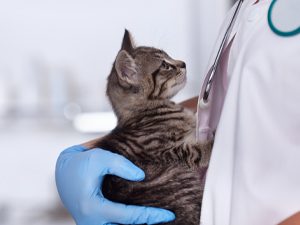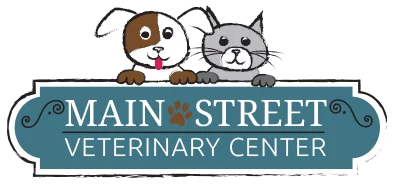When Should You Take a Kitten to the Vet for the First Time?
Bringing a new kitten into your home is an exciting time filled with cuddles, playtime, and adorable moments. However, it’s also a critical period to ensure their health and happiness for years to come. One question many new kitten owners have is, “When should I take a kitten to the vet?” This blog from Main Street Veterinary Center in Bartow, FL, will guide you through the important first vet visit and why it’s essential for your kitten’s health journey. If you have any questions or need to schedule an appointment, please give us a call at (863) 534-9584.

The First Visit: Timing is Everything
The ideal time for a kitten’s first visit to the vet is around 8 to 10 weeks of age. This initial check-up is vital for setting up a health plan that includes vaccinations, parasite control, and nutritional advice. At Main Street Veterinary Center, we love meeting new kittens and their families. This visit allows us to assess your kitten’s health, discuss their care needs, and answer any questions you might have.
Vaccinations: Protecting Your Kitten
Vaccinations are a key topic during the first vet visit. They protect your kitten from common diseases and are started at about 8 weeks, with follow-ups every 3-4 weeks until they are about 16 weeks old. Our team will tailor a vaccination schedule based on your kitten’s specific needs and lifestyle.
Parasite Control: Keeping Your Kitten Happy and Healthy
Parasites, such as fleas, ticks, and worms, can be more than just a nuisance; they can pose serious health risks to your kitten. During your first visit, we’ll discuss the best ways to protect your kitten from parasites and recommend a treatment plan that fits their needs and your lifestyle.
Nutritional Counseling: Building the Foundation for a Healthy Life
Proper nutrition is the cornerstone of a healthy life for your kitten. Our team will provide personalized advice on feeding your kitten, including what types of food to choose, how much to feed, and how often. Whether you’re curious about wet food, dry food, or a combination, we’re here to help you make informed decisions.
Spaying or Neutering: A Responsible Choice
Discussing spaying or neutering is an important part of your kitten’s first vet visit. These procedures not only prevent unwanted litters but also offer health benefits, such as reducing the risk of certain cancers and behaviors like spraying. We can help you decide the best time for these procedures based on your kitten’s health and development.
Behavioral Advice: For a Happy, Well-adjusted Kitten
Understanding kitten behavior is crucial for a harmonious household. From litter box training to scratching and socializing, our team is here to offer advice and solutions for common kitten behaviors. We believe in positive reinforcement and will provide you with tips to encourage good behavior in your kitten.
Continuous Care: The Path to a Healthy Adult Cat
Your kitten’s first vet visit is just the beginning of a lifelong health journey. We’ll discuss the importance of regular check-ups, ongoing vaccinations, and parasite control to keep your kitten healthy as they grow. At Main Street Veterinary Center, we’re committed to being your partner in your kitten’s health, every step of the way.
Schedule an Appointment with Main Street Veterinary Center
Welcoming a kitten into your life is a wonderful adventure. By scheduling their first vet visit at Main Street Veterinary Center, you’re taking an important step in ensuring their health and happiness. Whether it’s vaccinations, nutritional advice, or behavioral tips, our team is here to support you and your new companion. If you’re ready to schedule your kitten’s first visit or have any questions, please call us at (863) 534-9584. Together, we’ll make sure your kitten has the best start in life.
Recent Posts
About Us
Family is family, whether it has two legs or four. At Main Street Veterinary Center, we've spent the last 40 years healing and caring for your pets. As a family-operated practice, we know that family is about more than simply being related. Animals give us the ability to develop strong bonds and feel great compassion for a fellow living creature.
